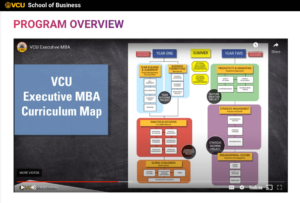How do you assess the quality of an MBA program? Starting with the part-time/weekend MBA program that you want to attend:( in-person, online, or hybrid formats -see my video on these), I suggest these five factors to consider:
- Rankings
- Reputation
- Faculty
- Content
- Administrative support
Some of this may apply to full-time MBA programs as well.
Rankings
Rankings by media such as US News & World Report or Fortune Magazine can be helpful indicators if you have the flexibility to attend those programs wherever they are. There are many criteria that go into these rankings and they are updated annually. Media companies measure the entire MBA program using university-provided data plus surveys from alumni and Deans in other MBA programs. If you are changing industries, going to a Top 25 MBA program can be positive.
Reputation
Reputation is different from ranking. Reputation is based on what business leaders think about an MBA program. This can be a regional perspective too. Data on reputation could be the number of on-campus interviews and job postings on websites such as Handshake. Also, look for alumni groups on LinkedIn or local meetups. The best advice on assess the quality of an MBA program’s reputation is to talk with alumni and ask about their experience.
Faculty
Generally speaking, the choice of a university to attend for a bachelor’s or master’s degree is based on the institution’s ranking or reputation. However, doctoral programs are based on the quality of the faculty because doctoral candidates choose to study with select faculty or departments. Question to consider: How many doctoral degrees are awarded each year and is the number +/- changing ? Also, you should look for the number of publications produced by faculty. It is hard for non-academics to judge the quality of the publication, but a simple count can tell much about the university. Here is an example publications count from William and Mary College using Google Scholar. MBA programs at universitys that award relevent doctorates and whose faculty publish a lot can be solid choices.
Content
Every MBA program is a mix of core subjects plus electives or focus topics. You can see examples of core subject textbooks here. Core MBA subjects are Accounting, Economics, Finance, Information Systems, Operations/Supply Chain Management, Management, Marketing, and Strategy. Most programs will include courses on leadership and teamwork. Many MBA programs include a global course which may include an international trip. In some programs, students may choose their electives and in others, the entire program is curated for students with some possible concentrations. Most programs will have major projects for teams to work on. Solid core subjects plus current electives is a good sign.

Administrative support (high-touch vs low touch)
Admin support to candidates and students can vary based on the format of the MBA program (in-person, hybrid, or online) and the tuition that you pay. In general, in-person programs are high touch and the admin support is lower in online programs. Examples of admin support include class registrations and parking passes, catered meals, social events, published class directories, transportation to offsites, branded swag, and delivering all textbooks & course materials. Questions on this factor: Are there dedicated program staff and advisors that you can meet with in-person or via Zoom/video conference?
TLDR: Beyond the rankings ask these questions to assess the quality of an MBA program that you are considering.